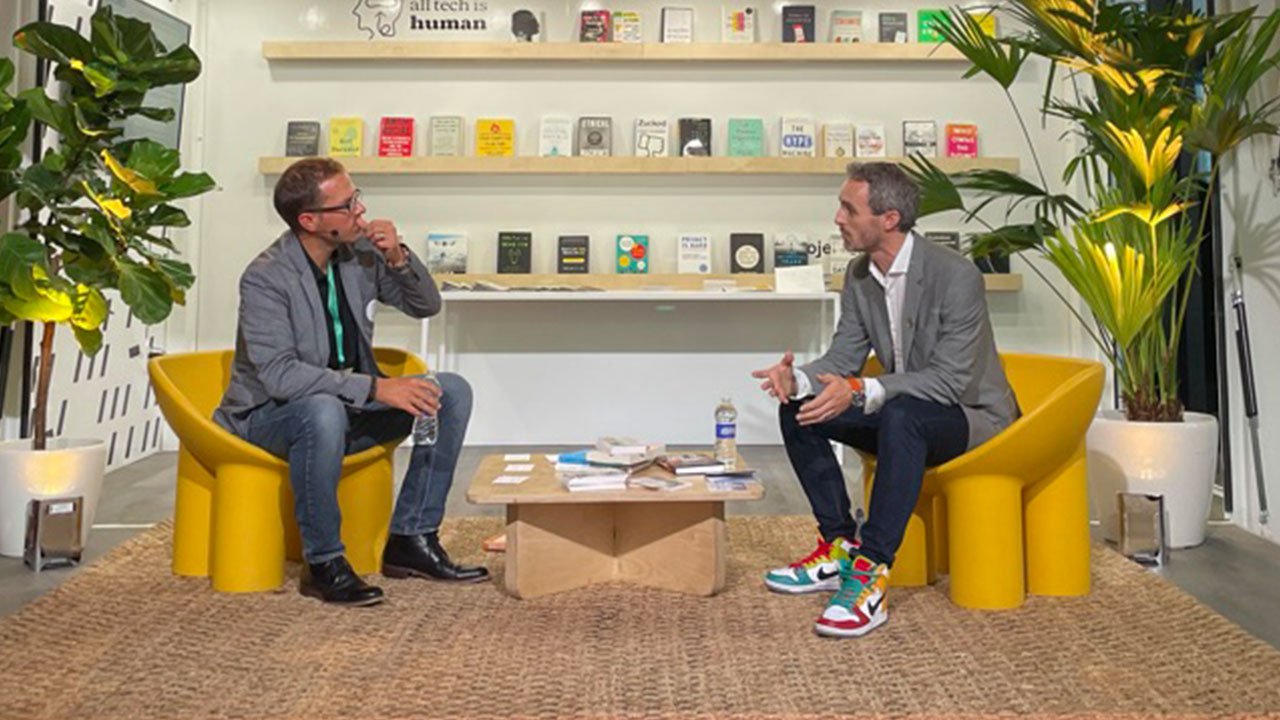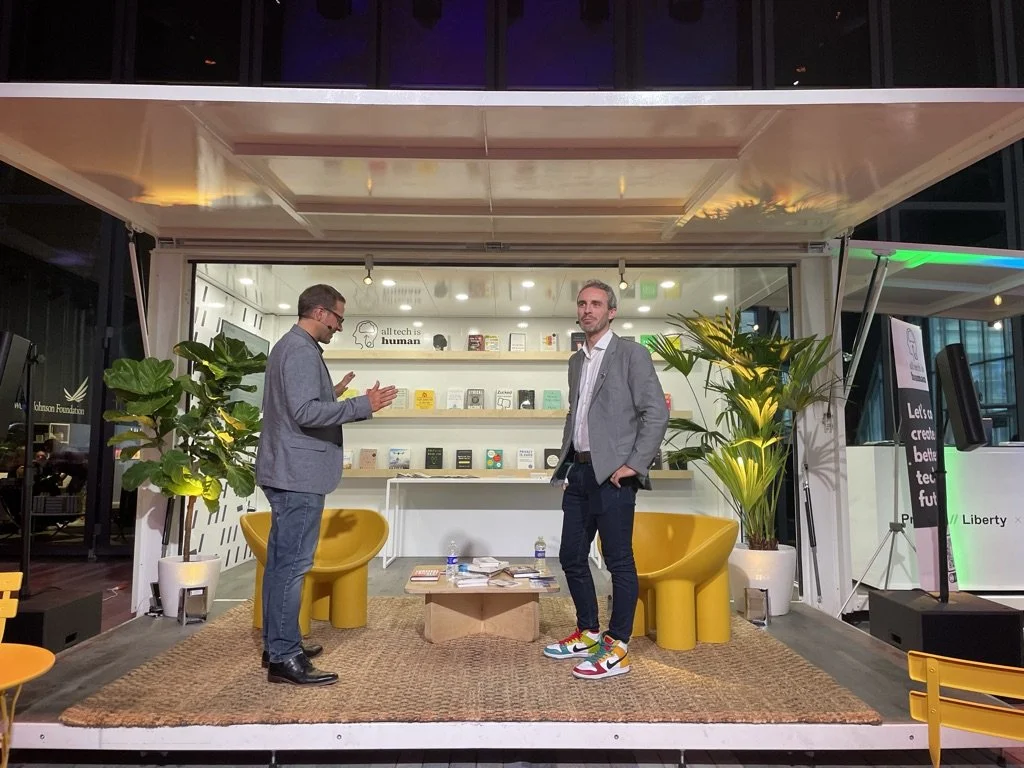All Tech Is Human Library Podcast Series #8 | Tom Thorley
In the eighth conversation of a sixteen-part All Tech is Human Library Podcast interview series, Director of Technology at the Global Internet Forum to Counter Terrorism (GIFCT) Tom Thorley joins David Ryan Polgar for a conversation about how we can create a more resilient internet and world through increased trust and safety measures. How can we all hold platforms accountable in the fight against extremism? Check out the full podcast series here.
About Tom Thorley
Tom Thorley is the Director of Technology at the Global Internet Forum to Counter Terrorism (GIFCT) and delivers cross-platform technical solutions for GIFCT members.
He worked for over a decade at the British government’s signals intelligence agency, GCHQ, where Tom specialized in issues at the nexus of technology and human behavior. Tom spent five years working in the US Government, Military and Intelligence agencies to coordinate intergovernmental relationships and providing expert consultancy on cyber issues, disinformation, technology strategy and operational planning. Prior to his deployment to the US, Tom built and operationalized Data Science teams to inform operations and discover threats, particularly focused on counter-terrorism.
Key Takeaways
Reducing harm online takes a multidisciplinary team of people who have the skills to think through problems creatively.
To get into the field of responsible tech, we must not be afraid to harness the power of our existing skill sets, seek mentorship, and expand our networks in search of opportunities.
The challenges of violence, extremism, bullying, child exploitation, etc. are paralleled in the digital and physical worlds. When we address them in the physical world, we can design for more positive outcomes in the digital world.
Quotes
“...When we are thinking about the long term, how to help tech companies prevent violence extremism on their platforms. They need to have the right people. They need to have people with the skills to think through problems about responsible technology with. They need to have people who are trained to think about the ethics of the decisions that they're making, the human rights impacts of the decisions that they're making, even down to like design functions of how you build a reporting system, how you build, systems for flagging content or for labeling content. All of these things have implications on human rights, on ethics, on the way that we deliver technology…” 8:00 - 8:37
“The thing that I always think about when it comes to power is, like, we give away our power too easily. Anybody coming out of university and using technology. Honestly, you are far more advanced than many tech executives. Many senior government officials. There are experiences that you've had there, there's knowledge that you have just by being who you are that they will never have and never could understand your perspectives. Don't give away your power. You come into a room as an expert, like, what is it that you are expert in? What is it that you have as an experience that nobody else has? What's your unique perspective? Don't give those things away. Harness your power. Hold your power and use your power to transform and drive your passion forward.” 11:03 - 11:47
“…For folks wanting to get into the field, it's important just to get out there and meet people. I know it's really hard in the pandemic, but meeting in person makes such a big difference, and people are really open to helping you if you just make that human connection first. The second thing though is I would really make a plea to those in the field already. Those people who are in positions, whether they're in trust and safety teams, in content moderation teams, in policy positions, and in tech companies. Look back and help people up, right? You need to turn around and you need to be giving back to the community.” 12:45 - 13:19
“I think the better future online is in a lot of ways paralleled by a better future offline, right? A better future in the real world. I think tech companies need to be thinking more carefully about how they're designing for positive outcomes and for positive interventions when there are problems like violence, extremism, or bullying, or child sexual exploitation. How do I proactively design my system to enhance the good behaviors we want when it comes to the offline? Governments need to be addressing these really core problems that we see at the fundamentals of society. People who are feeling disengaged, who are feeling excluded, who are feeling lonely, who are feeling that they don't belong in society, but those are the people that need to be reached. Those are the challenges that need to be addressed. And until we address those in the offline world, we are gonna see these reflections of these problems and the amplification of these problems in the online world.” 14:46 - 15:43
Learn More About Tom Thorley
Website | Twitter
Credits:
David Ryan Polgar - Moderator
Tom Thorley - Interviewee
Unfinished Live - Producers



